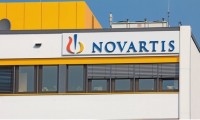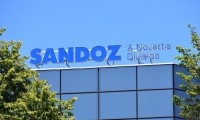-
FDA Approves Novartis’ New Rheumatic Disease Treatment
- Source: drugdu
- 111
- October 11, 2023
-
Takeda to Pull Lung Cancer Drug from Market After Failed Confirmatory Study
- Source: drugdu
- 197
- October 10, 2023
-
Novartis Shareholders Approve Sandoz Spin-Off as Product Plans Increase
- Source: drugdu
- 128
- September 19, 2023
-
AbbVie shares positive results from head-to-head study of Skyrizi in Crohn’s disease
- Source: drugdu
- 151
- September 15, 2023
-
AbbVie’s Skyrizi Outperforms J&J’s Stelara in Late-Stage Crohn’s Disease Trial
- Source: drugdu
- 110
- September 15, 2023
-
Acelyrin’s Lead Asset Izokibep Fails in Late-Stage Hidradenitis Suppurativa Trial
- Source: drugdu
- 107
- September 14, 2023
-
Sandoz partners with Samsung Bioepis to license Stelara biosimilar
- Source: drugdu
- 103
- September 13, 2023
-
FDA Approves Sandoz Biosimilar to Biogen’s MS Therapy Tysabri
- Source: drugdu
- 112
- August 29, 2023
-
Researchers publish early results with new interleukin-targeting antibody
- Source: drugdu
- 229
- August 17, 2023
-
J&J signs Stelara biosimilar settlement deal with Formycon and Fresenius
- Source: drugdu
- 192
- August 10, 2023
your submission has already been received.
OK
Subscribe
Please enter a valid Email address!
Submit
The most relevant industry news & insight will be sent to you every two weeks.













